Preparing Your Workforce for AI Transformation with Charlotte Evans from Coursera
Charlotte Evans delivered an insightful keynote at the Talent Development Think Tank Conference, sharing her expertise on workforce transformation amid AI advancements. Here’s a guide to implementing similar strategies in your organization, inspired by Charlotte Evans' session.
Embrace Rapid Technological Changes
During her keynote, Charlotte emphasized the need for agility in the face of fast-paced technological changes, such as AI. To stay ahead, encourage your teams to adopt a mindset of continuous learning and readiness to pivot. This involves staying updated on trends and being open to new tools and methodologies that enhance productivity.
Foster Communication Between Teams
Charlotte shared a compelling example of a pharmaceutical company where the lack of communication between drug discovery and data science teams was hindering progress. Encourage cross-departmental collaboration by breaking down silos and creating platforms for knowledge exchange. Regular workshops and collaborative projects can facilitate this communication.
Address the Immediate Training Needs
According to Charlotte, only 6% of organizations have effectively trained over 25% of their workforce in AI tools, despite high demand. Begin by assessing your team’s current skills and identify gaps that align with strategic goals. Provide foundational AI literacy training as a priority, alongside specific skills that relate to individual roles within the company.
Leverage AI for Efficiency
Charlotte highlighted how AI tools like ChatGPT are revolutionizing workflow efficiencies, as seen in data analysis tasks. Provide training on AI tools that can assist productivity, ensuring employees understand how to use them effectively. Encourage the use of these tools while maintaining QA checks to uphold work quality.
Encourage Executive Support and Strategy
Alignment Organizations with CEO-driven AI strategies tend to navigate transformations more successfully. Ensure executive alignment by involving leadership in AI-driven initiatives and integrating L&D strategies with company objectives from the outset.
Implement a Skills-Based Learning Model
Charlotte spoke about using a reputable skills taxonomy to enhance learning program effectiveness. Evaluate roles within your organization and align them with evolving skill requirements. Use established frameworks like Lightcast to define skills clearly and curate tailored learning pathways that support your employees’ career growth.
Emphasize Psychological Safety and a Growth Mindset
It's critical to create an environment where experimentation and learning from failure are encouraged. Psychological safety is paramount – foster an atmosphere where employees feel comfortable expressing ideas and taking calculated risks.
Celebrate Learning Achievements
Charlotte shared success stories where companies leveraged learning paths and badge systems to engage employees. Foster an environment that celebrates learning achievements with rewards and recognition, boosting motivation and participation.
Adapt and Evolve Training Offerings
Charlotte’s session reiterated that AI and skills training should be dynamic to remain relevant. Regularly update your training materials to reflect the latest capabilities and advancements, ensuring your programs evolve with technological progress.
Charlotte Evans' insights underscore the importance of strategic alignment and proactive upskilling to navigate AI-driven changes. By incorporating these principles, organizations can position themselves at the forefront of innovation, ensuring a skilled, versatile workforce ready to thrive in the dynamic landscape of AI transformation.
Be sure to listen to the full episode on the Talent Development Think Tank Podcast!
Thanks to our sponsor, Learnit, you can get a free 45-day trial to help your people build more skills that drive success Learn more.
As Director, Global Customer Advocacy, Coursera for Business, Charlotte Evans collaborates with leading organizations to drive workforce transformation through upskilling and reskilling initiatives. Her focus is advising companies across industries on unlocking their potential by aligning learning strategies with measurable business outcomes. She is passionate about highlighting customer achievements to inspire action, build trust, and foster long-term partnerships.
Her career began in student services in Asia, and her commitment to global education access was cemented while at Harvard Graduate School of Education where she received an Ed.M. in International Education Policy. Since joining Coursera in 2019, she has been proud to create meaningful opportunities for individuals to find opportunity and thrive in a rapidly evolving world.

